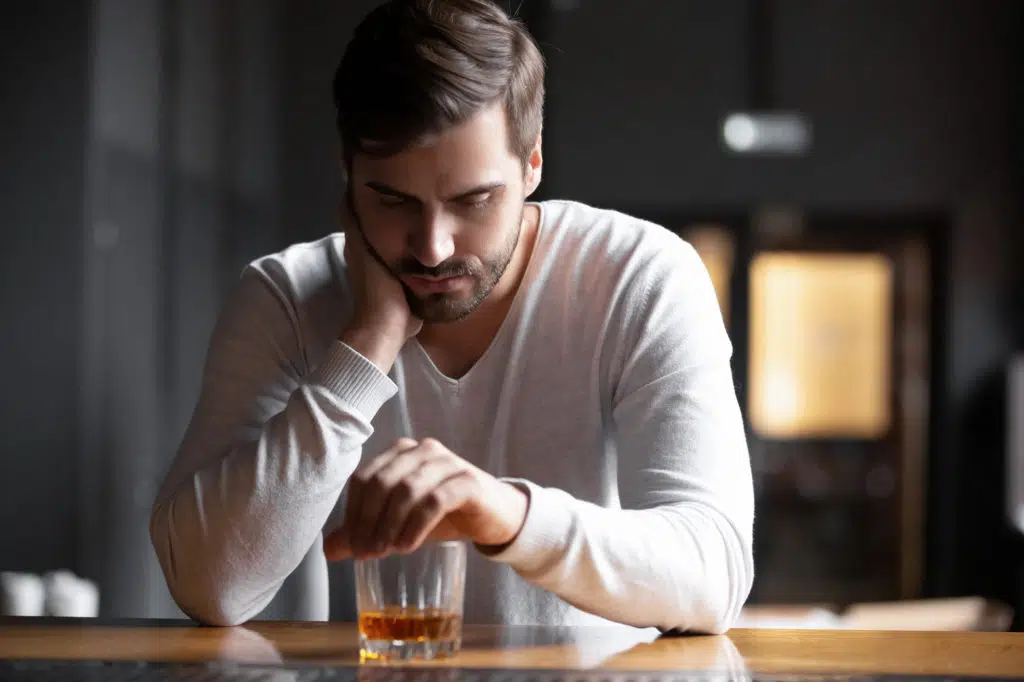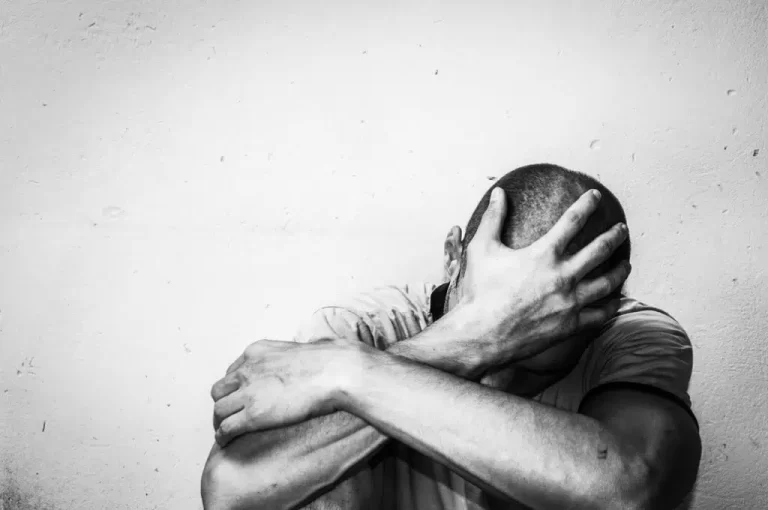Depression is more than just feeling sad, it’s a serious medical illness that negatively affects how you feel, the way you think and how you act. It can lead to a loss of interest in activities or hobbies and significantly interrupt your daily life.
This persistent feeling of sadness and loss of interest that characterizes major depression can lead to a range of behavioral symptoms, including alcohol abuse. In fact, according to the National Institutes on Alcohol Abuse and Alcoholism, the three mental disorders most commonly linked to alcoholism are major depression, bipolar disorder and anxiety disorder.
The link between depression and alcohol abuse
Can alcohol abuse cause depression? Can depression cause alcohol abuse? According to American Addiction Centers, there is a bidirectional relationship between alcohol use disorder (AUD) and depressive disorders. This means that both disorders can exist together. Each disorder increases the risk of the other, and each can worsen the other.
Treatment options for depression and alcohol abuse
Depression and alcohol abuse is a vicious pairing that can be difficult to overcome, but there is hope. The skilled team at Miramar Recovery Center can help treat both disorders with a dual diagnosis program individualized to meet your unique needs and situation. When you treat the mental disorder alongside the addiction, you can learn how to live a healthy, sober life effectively. Here is what you can expect from dual diagnosis treatment:
- Detox
We can help you safely taper your use of alcohol through a an addiction detox program. This program typically takes a few days to a week, depending on your health and the severity of your addiction. - Assessment
Once you have finished detox, we’ll assess your substance abuse and medical history. We want to evaluate your physical, social, mental and emotional health to ensure you get the exact help you need to overcome your addiction. - Treatment
In our dual diagnosis treatment program, you will meet regularly with a psychologist who will help you face your problems. You will also have the opportunity to attend group therapy sessions, recreational therapies and family counseling. You will also begin working on your 12-Step recovery program. - Aftercare planning
Once you are ready to return to normal life, our counselors will work with you to ensure you are placed in an environment that will continue to encourage your recovery journey. We will also connect you with an appropriate sponsor if you did not connect with one during treatment.
Signs and symptoms of co-occurring disorders
If your loved one is exhibiting one or more of the following symptoms, they may be suffering from a mental health disorder as well as a substance use problem:
- Withdrawal from loved ones
- Sudden change in behavior
- Risky or unusual behaviors
- Failure to take care of work
- Legal issues
- Financial problems
- Bad emotional episodes or a lack of control over their emotions
- Substance abuse
- Uncontrollable desire to use alcohol or drugs
How to help a loved one stay sober
It is crucial that family members provide positive and sober support to their loved ones after treatment, to help prevent relapse. While nothing can guarantee that a relapse will never occur, here are a few ways you can help encourage your loved one to continue their recovery journey:
- Keep all drugs, alcohol and other paraphernalia out of the home to avoid triggering a relapse.
- Refrain from using substances with or around your loved one in recovery.
- Join in on sober outings like hiking, swimming, skiing or other recreational activities.
- Help your loved one find support groups or people that can provide first-hand knowledge and guidance during their recovery.
- Make sure or provide incentives to ensure your loved one attends all treatments follow-up appointments as needed.
- Educate yourself on relapse warning signs so you know what to look out for.
- If relapse occurs, support your loved one in returning to treatment.
If you or a loved one needs support for depression and alcohol abuse, call Miramar Recovery Center at (949) 691-5036 and talk to one of our licensed professionals about our dual diagnosis program today. Our center specializes in comprehensive substance abuse and dual diagnosis treatment, and we’re confident that we can help your loved one overcome addiction and achieve a sober life. Take the first step toward your new life today.



